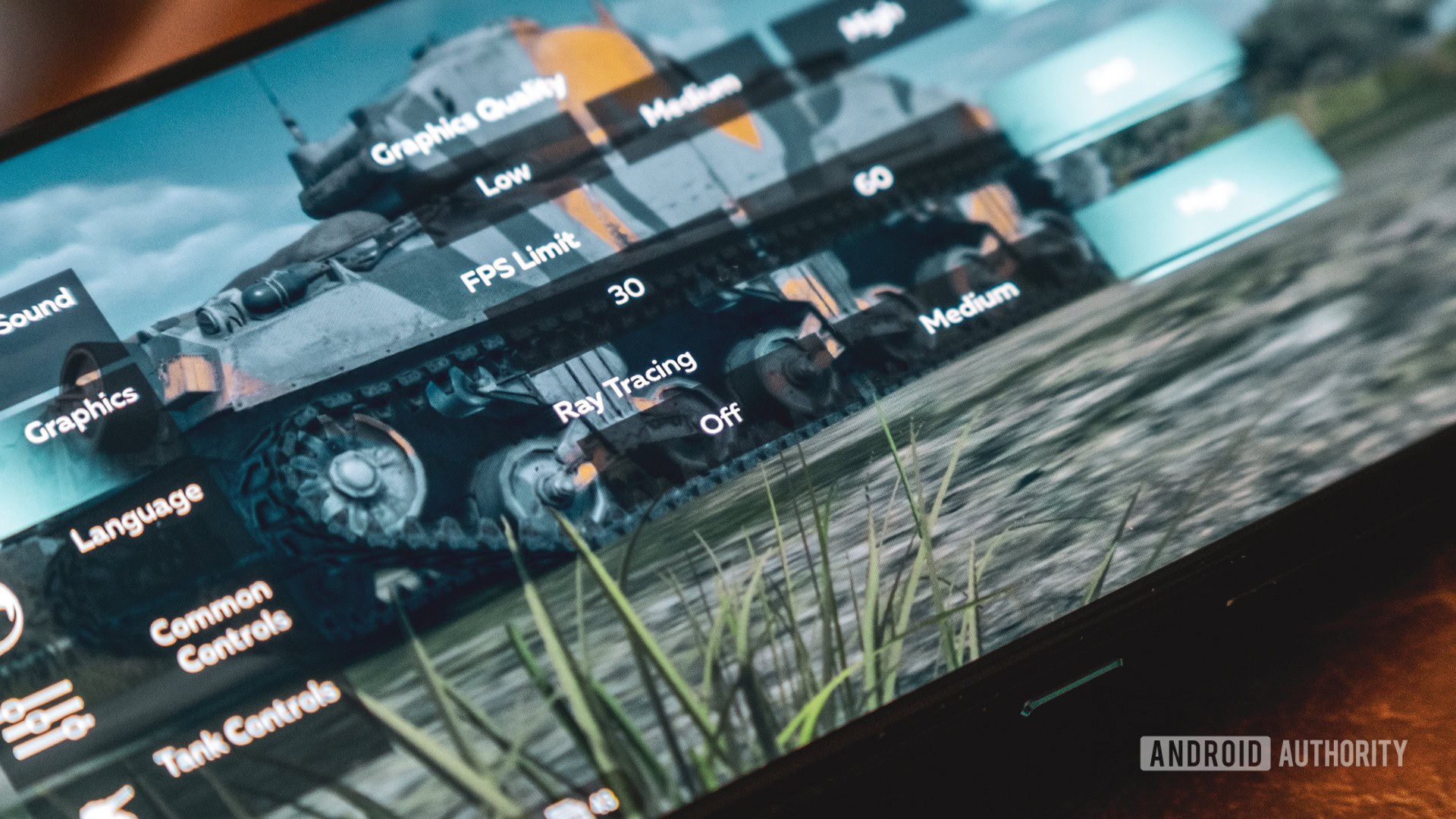Affiliate links on Android Authority may earn us a commission. Learn more.
War Thunder finally brings ray tracing to mobile. Can you tell the difference?

I’ve been looking for a new game to play this week, and it turns out that the first Western mobile game with ray tracing support just dropped. War Thunder Mobile, a spin-off of the popular PC title, is now available on Android, complete with ray tracing graphics options.
Naturally, after all the hardware hype, I had to see this for myself. I grabbed the Snapdragon 8 Gen 2-equipped ASUS ROG Phone 7 — a seriously great gaming phone — and cranked up the graphics as I fought my way through a few rounds. My TL;DR conclusion: War Thunder Mobile is undeniably fun, but I can’t say I’m as impressed by ray tracing. Honestly, I could barely tell the difference with the setting enabled. Judge for yourself.
If you peep extremely closely, you may notice slightly sharper shadows, an additional reflection or two, and marginally nicer particle effects (although we’re not really sure that even requires ray tracing), but these make no meaningful difference on such a small screen. The core graphics of War Thunder Mobile are virtually unchanged, especially as there’s no fancy lighting to speak of. Even sea reflections, surely a no-brainer for a ray tracing upgrade, look the same whether the feature is toggled on or off.
The good news is that the ROG Phone 7 runs the game with the graphics cranked up to max and ray tracing enabled at a reasonably steady 45-60fps online, ensuring a good, if not quite smooth experience. However, leave ray tracing disabled, and the phone locks well above 60fps online and virtually locked to 120fps offline, even in the more demanding maps. These imperceivable graphical changes hardly seem worth a 33% typical reduction and the difference between silky and just about passable frame rates.
Frame rates are a bit lower with the Exynos-powered Samsung Galaxy S22 Ultra, in the region of 50fps versus tank bots with the graphics on max. Interestingly, turning ray tracing on and off doesn’t seem to make such a significant performance difference with this chip, which warrants further investigation. Even so, both chips provide better frame rates than we’ve seen in ray tracing benchmarks, suggesting slightly lighter workloads in real-world games.
Early ray tracing runs well, but the effect isn't worth buying a new phone for (yet).
This isn’t to disparage the developers’ efforts; ray tracing would always start as minor additions and potentially ramp up to more meaningful upgrades down the line. After all, mobile games have to run on a wide range of hardware, including phones that don’t yet have ray tracing support, while remaining balanced at various graphical settings.
We’ve always erred on the side of skepticism when it comes to ray tracing on mobile, and it’s still early days. But even so, it’s hard not to come away disappointed from my first taste of an actual game boasting the feature. If you are holding out on a new gaming phone just for ray tracing, I’d suggest waiting a little longer to see if the technology brings more significant improvements in other titles. Still, that won’t stop me from returning for another round (or several) in my Tiger H1.